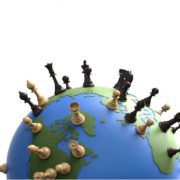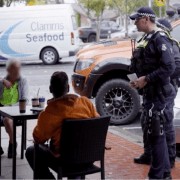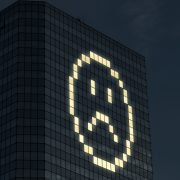Post COVID-19 predictions. A brave new world?
By John Kananghinis
Channelling Nostradamus – without the quatrains – we take a, not entirely serious, look into the near future.
Likely to be as accurate as the ABC’s Dr Norman Swan’s predictions that there would be 60,000 to 80,000 cases in Australia by mid-April (actually around 6,600 with over 4,000 recovered and less than 75 deaths).
Based on, probably, the same amount of in-depth analysis.
Domestic economy
- Lots of empty CBD office space as companies realise they can have a significant proportion of their employees work from home.
- High demand for home office equipment as the same companies gear-up staff for remote working.
- Timid consumers when it comes to discretionary items.
- Interest rates stay low for a decade.
- House prices bounce back, except for apartments.
- Unemployment rate at around 7%. Youth unemployment double that.
- Shopping centres with many, ‘exciting new shopping experience coming soon’ hoardings on empty spaces.
- No one mention the phrase ‘budget surplus’.
- Not as many foreign students in the Melbourne CBD.
- Universities crying poor and having to find ways to educate Australian kids.
- Tourism, hospitality and entertainment jobs thin on the ground. Plus far fewer backpackers serving you at your fav trendy spots.
- A bunch of hotels shutting up shop and being converted to apartments.
- ASX popping up and down like a hip-hop dancer but gradually climbing back.
Australian politics
- A great deal of difficulty for the Federal Government in retreating from the higher level of New Start (now rebranded Jobseeker) allowance. Same with the free childcare.
- Saint ScoMo going to an election in 2021, before all the stimuli and incentives have been fully removed, and winning a thumping majority.
- Politicians of all colours rediscovering a passion for Australian manufacturing – read lots of investment incentives.
- Labor party has nowhere to go, seeing as Coalition has gone further left than they ever dared to dream.
- Australia to never pay off government debt, becomes the perpetual political football for the next century.
Global politics
- Finally, no one believes anything the Chinese Communist Party says.
- Climate change what now? Gretta who?
- India/China conflict becomes real possibility if India’s death toll from the virus becomes too great.
- Trump loses to Biden and VP Kamala Harris or VP Michelle Obama. (Yup, that’s probably the biggest call of all).
- Boris Johnson has his statue added to the panoply of heroes, colonists and rogues in Whitehall.
- Italy changes government, at least twice, by the end of 2021.
- Germans finally give up on ever seeing one euro cent of their money back from the PIIGS (Portugal, Italy, Ireland, Greece and Spain).
- National borders actually mean something again. Who knew Aus would be proved right on that one?
- Instability in global markets and high unemployment open the door for right and left extremist parties to increase popularity. Both sides only needing a charismatic leader to push their agenda.
- UN and various bodies like WHO face reform pressure but opt for resistance that sees their funding slashed.
- US China trade war on again as Trump makes last desperate effort to look tough and CCP just waits him out.
- Middle East – same.
- Russia never discloses coronavirus death toll. Kremlin doesn’t care. Vladimir Putin still Tsar.
General
- Much grumpiness about our third world standard NBN speeds. Thanks Rudd and Turnbull.
- Turnbull memoir ‘A bigger picture’ (no, seriously, he wanted a bigger picture) the bargain bin winter read (or draft-stopper) of the year.
- Not to be outdone. Rudd releases third tome entitled ‘How I would have crushed coronavirus, if only that two faced f’n @#%* had backed me for UN Secretary General’.
- No more Bali trips, so more tattooed and toothless on the Gold Coast. One wouldn’t think it possible, but it is.
- Great OS travel deals, assuming you’re allowed into destinations and you don’t face an involuntary 14-day extension to your time away from home on return to Aus.
- The ABC’s credibility plumbing new lows, given that they predicted we would all be dead by now, because we didn’t lock ourselves away for six months. While they continued to ‘work’ – and get paid.
- Coronavirus beard growing becomes new status symbol. (Labelled misogyny by feminists)
- New office game of spot the colleague’s naked partner walk across the background of screen in teleconference meetings.
- Louis Vuitton release a range of tracksuit pant business wear. No, wait, they already do. No joke, LV monogramed Track Pant for the low, low price of $1,760.
But sadly
- Africa and India suffer massive death toll from coronavirus. Near Asia not far behind.
- We collectively learn little from this fiasco and the next one is worse, or worse still, deliberate.




